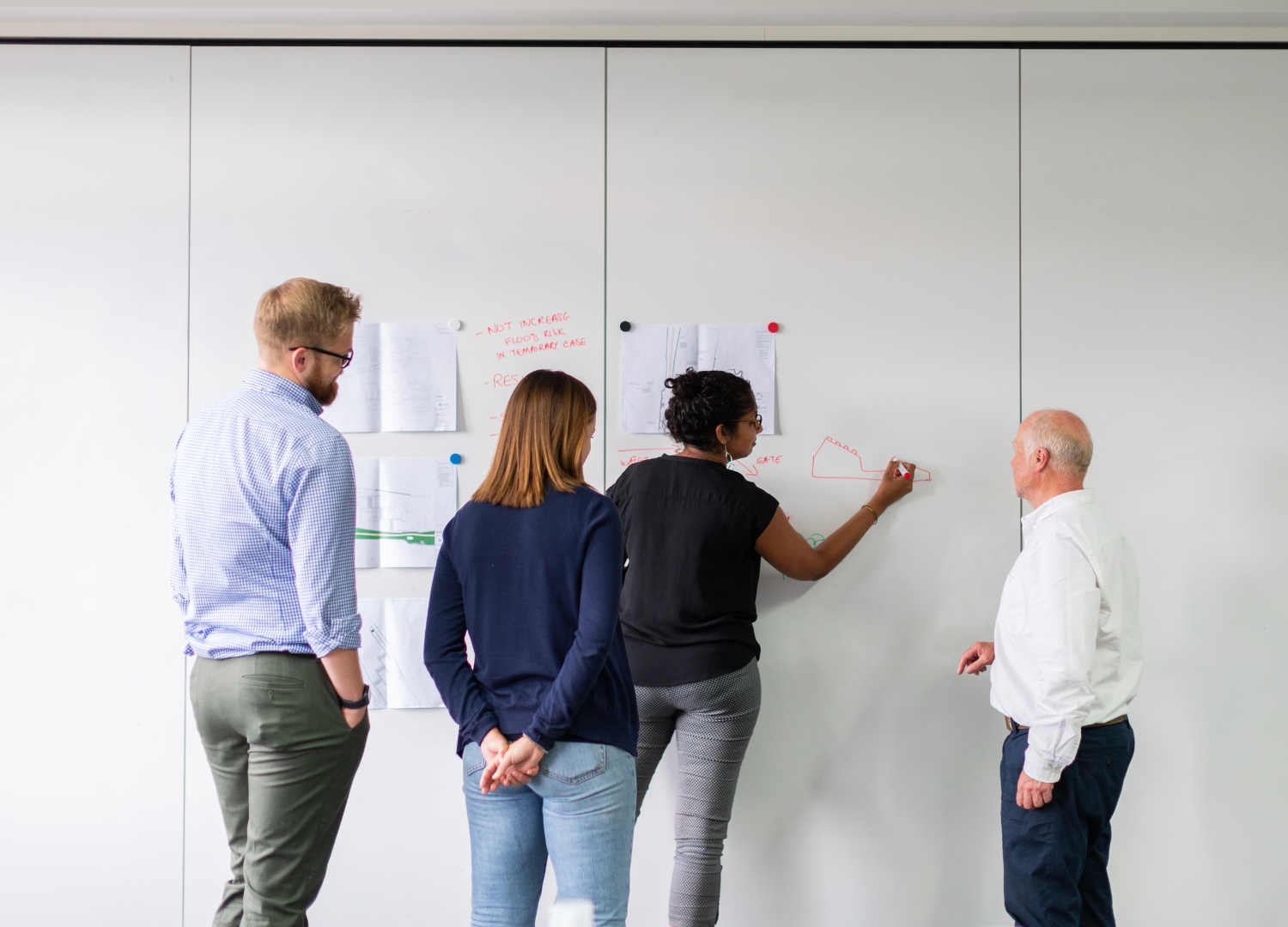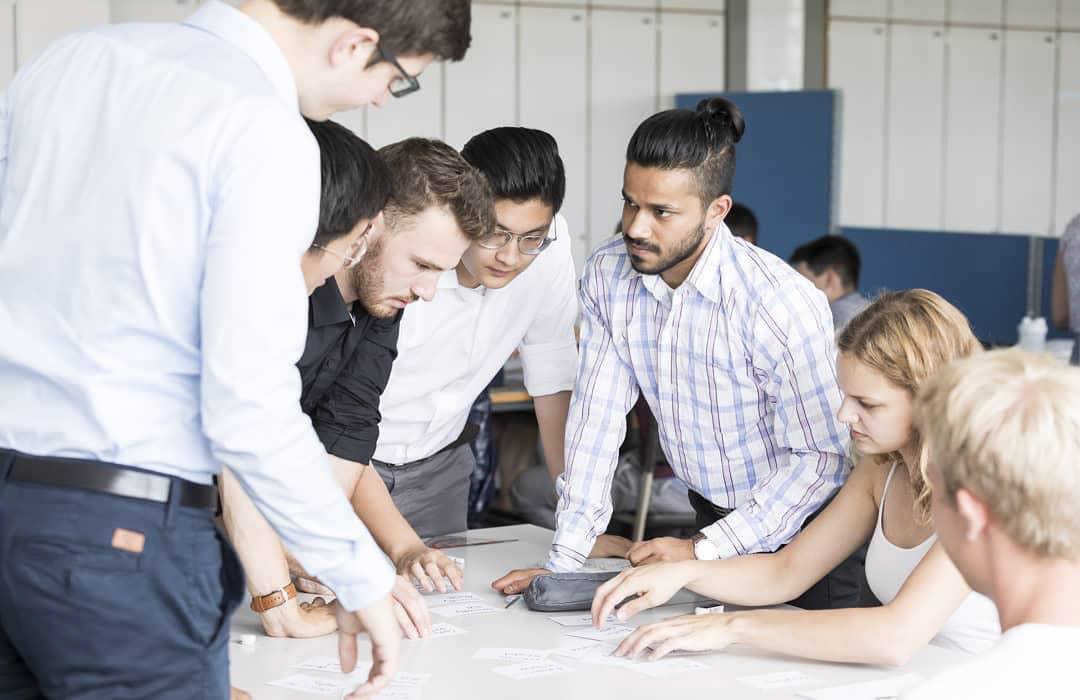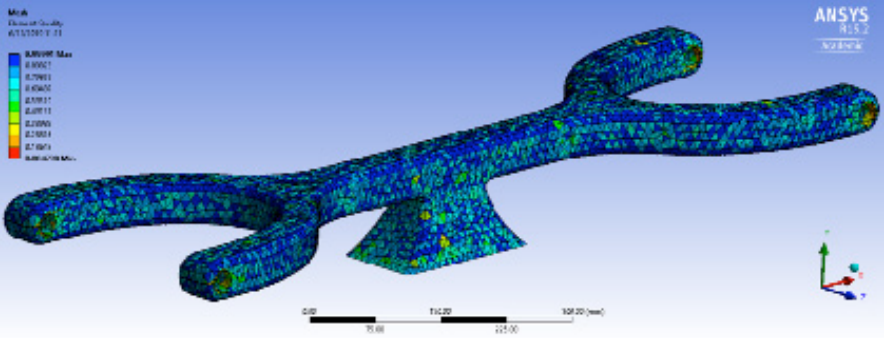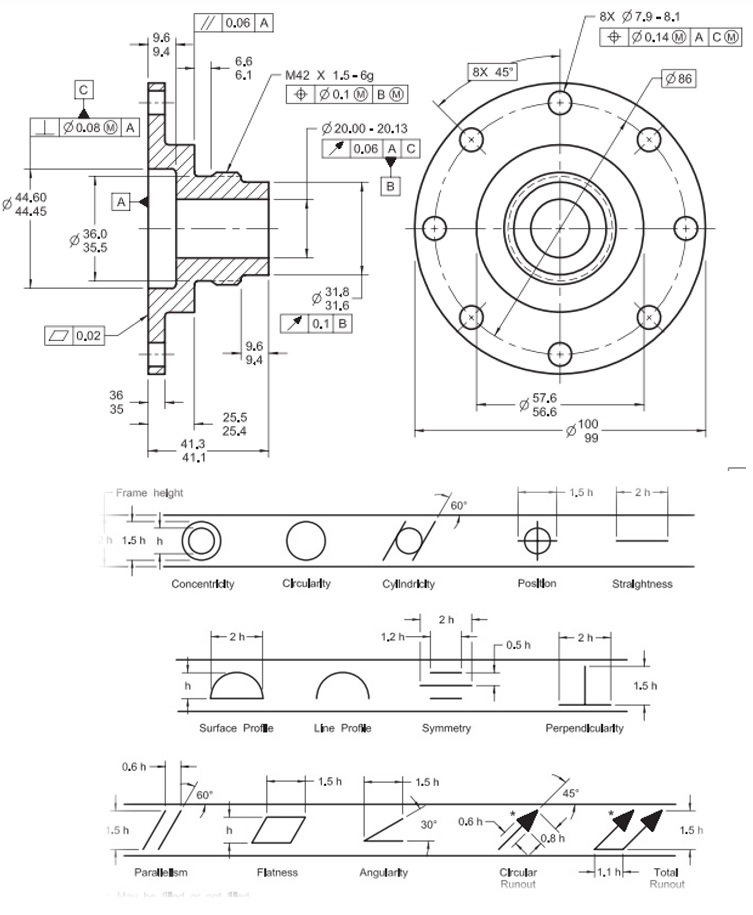
MILESTONES is a series of skills-based, microcredential certifications on engineering and prototyping skills. This program has been providing technical experiences to supplement and enhance knowledge gained in traditional classroom curriculum in collaboration with the Office of Professional Practice since 2019. The program has been developed under the guidance and decades of experience of Purdue Engineering faculty. Modules average 10 to 15 hours of hands-on practical training. This program aims to enhance the technical abilities of Purdue and partner university students to prepare them with skills for their professional engineering careers.
The courses are guided by a hands-on, learning-by-doing philosophy and a field-specific systems approach, which centers the learning on useful skills that are ready to be used in industry or research enterprises.
Upon successful completion of the module(s), students receive a digital certificate via their Purdue email. Certificates will be issued after each semester within a month of final exams. We encourage the display of this accolade on professional social media outlets such as LinkedIn.
To register for the FREE Entry Level Python Course: Click Here
To register for Milestones Courses:
1. Click here to Log on to the XEngine Database using Boilerkey
2. Click here to select Milestones and register for the course you are interested in
Registration for Session 1 is now open
Session 1: January 26 - February 26
Please check out the FAQ at the bottom of this page if you have any questions.

NEW: 3DExperience (Dassault Systèmes)
From CAD modeling all the way up to virtual experiences development for AR/VR devices — such as Apple Vision Pro —, this Milestones course explores Dassault Systèmes' 3DEXPERIENCE platform and covers some of their most popular apps:
- Part Design (CAD modeling)
- Assembly Design (Assemblies, Kinematics and motion)
- Creative Experience (Virtual experiences)
Learn how to use one of the leading CAD software in the market to:
- Create intricate 3D models.
- Improve their design by analyzing their kinematics from an assembly perspective.
- Bring them to "reality" and provide a top-level user experience by developing scenarios where their functionality can be simulated and explored with the aid of AR/VR devices.
A starting point to begin your journey in the development of Virtual Twins technology for the semiconductor industry at Birck Nanotechnology Center (Virtual Twins@Birck).
Note: Due to software compatibility, a Windows computer is required (Mac computers are not yet supported). Some computers are available at HAMP 3114 computer lab, access is limited.
Time: Mondays, 5:30 PM - 7:30 PM
- Session 1: 1/26, 2/2, 2/9, 2/16, 2/23, 3/2, 3/9, 3/23, 3/30, 4/6, 4/13
Location: MRGN 121
NEW: Engineering Leadership Fundamentals (ELF)
Leadership skills are essential for success in the modern engineering industry. However, this area of study is largely neglected in traditional undergraduate engineering curricula.
The Engineering Leadership Fundamentals MILESTONES bridges this gap through a combination of case studies, collaborative discussions, and engaging activities. This course is taught by experienced undergraduate engineering leaders who bring novel perspectives and practical insight to the material. Students will develop competencies in visionary goal-setting, conflict resolution, effective delegation, influential decision making, and more, all within the context of engineering challenges. Whether aspiring to lead design teams, launch startups, or manage large-scale engineering projects, participants will gain a strong foundation in the principles of leadership.
Time: Wednesdays, 5:30 PM - 7:00 PM
- Session 1: 1: 1/28, 2/4, 2/11, 2/18, 2/25
Location: GRIS 118
Prototyping and Manufacturing

CAD/3D Printing
The CAD/3D printing milestone was designed to provide students the necessary tools to navigate through CAD software, create designs with intermediate level geometries, approach a design problem in different angles and bring an idea to life by means of 3D printing. Each session lasts approximately two hours.
This course is taught in collaboration with Purdue's Chapter of the American Society of Mechanical Engineers (ASME)
Time: Mondays, 5:30 PM - 7:30 PM
- Session 1: 1/26, 2/2, 2/9, 2/16, 2/23
Location: CRTN 1011 and DLR 131 (Your instructor will reach out directly)
If an instructor or student cannot attend a meeting, a make-up week will be scheduled to finish any outstanding work.

Finite Element Analyis (FEA)
Finite Element Analysis (FEA) is the simulation of physical phenomena using the Finite Element Method (FEM). It allows for testing before production, which leads to less time spent prototyping and allows for the simulation of complex problems such as blast wave propagation and crashes (whether they be planes, trains, automobiles, boats, ships, etc.) in an environment that is completely user controlled. FEA even has applications in biology for modeling injuries. You’ll learn the basics of mesh quality, stress analysis and boundary conditions which are all required to do Structural Simulations. Each session lasts approximately two hours. CAD experience is recommended.
This course is taught in collaboration with Purdue's Chapter of the American Society of Mechanical Engineers (ASME)
Time: Wednesdays, 5:30PM - 7:30PM
- Session 1: 1/28, 2/4, 2/11, 2/18, 2/25
Location: BRK 1001
If an instructor or student cannot attend a meeting, a make-up week will be scheduled to finish any outstanding work.

Geometric Dimensioning and Tolerance (GD&T)
This milestones class will focus on beginner to intermediate level Geometric Dimensioning and Tolerancing (GD&T), as well as different manufacturing processes with associated design considerations. Over the course of the class, students will learn valuable GD&T skills such as print reading, tolerancing, datums, profiles, and tolerance stackups. Additionally, this course will cover design considerations for standard machine shop machines, additive manufacturing, various material treatments such as heat treatment, and associated inspection methods to ensure parts are built to specification. Each session lasts approximately two hours.
This course is taught in collaboration with Purdue's Chapter of the American Society of Mechanical Engineers (ASME)
Time: Thursdays, 5:30PM - 7:30PM
- Session 1: 1/29, 2/5, 2/12, 2/19, 2/26
Location: LMBS 5237
If an instructor or student cannot attend a meeting, a make-up week will be scheduled to finish any outstanding work.
Reverse Engineering - 3D Scanning
This course will focus on exploring the fundamentals of 3D scanning technology, its principles, and its applications in the field of reverse engineering. You'll learn best practices for capturing intricate details and handling challenging surfaces. This course will also cover software tools for cleaning, aligning, and merging point clouds to create a comprehensive 3D representation, and the integration of scanned data into CAD software for modification, analysis, and optimization. CAD experience is highly recommended.
Time: Tuesdays, 5:30PM - 7:30PM
- Session 1: 1/27, 2/3, 2/10, 2/17, 2/24
Location: BRK 1001
If an instructor or student cannot attend a meeting, a make-up week will be scheduled to finish any outstanding work.
Electronics and App Development
Introduction to Electronics
Through this workshop, we will learn to build a "GoodNightLight” circuit using operational amplifiers and photoresistors. Design, build and test a professional-grade printed circuit board (PCB) that you will solder yourself and take with you at the conclusion of the workshop. We will discuss the basics of electronics covering concepts ranging from Ohm’s Law, filters, operational amplifiers, and the like. This will be an introductory course meant to give students a practical look at the basic principles of circuits and their utility. These sessions will be asynchronous with an "open lab" concept. The first meeting will be in-person and explain the logistics of this course.
Please budget two hours of time for work each week. You will get the work and be able to come to the lab anytime between 4:00PM - 8:00PM on Mondays.
Time: Mondays, 4:00 PM - 8:00 PM
- Session 1: 1/26, 2/2, 2/9, 2/16, 2/23
If an instructor or student cannot attend a meeting, a make-up week will be scheduled to finish any outstanding work.
Programming with Arduino
Arduinos are open-source, programmable microcontrollers that let you prototype a variety of electromechanical systems. They are great for demonstrating an idea or mechanism. In this MILESTONES workshop, we will learn how to program them, make sketches, use them to take data and actuate motors. These sessions will be asynchronous with an "open lab" concept. The first meeting will be in-person and explain the logistics of this course.
Please budget two hours of time for work each week. You will get the work and be able to come to the lab anytime between 4:00PM - 8:00PM on Mondays.
Time: Mondays, 4:00 PM - 8:00 PM
- Session 1: 1/26, 2/2, 2/9, 2/16, 2/23
First in-person meeting will take place at 4:00 PM on 1/26 in LMBS 5237.
If an instructor or student cannot attend a meeting, a make-up week will be scheduled to finish any outstanding work.
FAQ
How much does a Milestones workshop cost?
Milestones workshops are free of charge to Purdue students.
What is the benefit of these courses?
These courses are designed to give you hands-on experiences to help you develop skills you will need in the workfield. Once you have completed a Milestones course, you will also receive a digital badge you can put on your LinkedIn profile. This will allow employers to see that you have technical skills they may be looking for.
What is the time commitment?
Each workshop session time is listed. It is recommended that you spend the same amount of time outside of the workshop reviewing the material to ensure you understand it.
Which courses require kits?
Course instructors will let you know upon confirming registration.
There are two sessions for the same course. Do I need to sign up for both?
No. Each session is the same course. The different sessions are offered to provide options and flexibility to students’ schedules.
For any other questions, please email Alejandro Benitez, benitezd@purdue.edu
